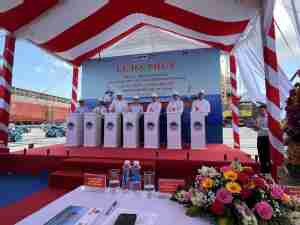Glencore’s Colombian port has no room for Drummond coal-source
By: Reuters | Jan 13 2014 at 10:40 AM | Maritime
A Colombian coal port owned by Glencore Xstrata Plc has no extra capacity to carry coal from rival miner Drummond, which saw its export facility shut down over the violation of a new environmental law, according to an industry source.
Colombia’s government last week said the U.S.-based Drummond might be able to export some of its coal through the Puerto Nuevo port operated by Glencore’s Colombian coal mining unit Prodeco, until its own docks meet new environmental standards. Drummond expects compliance will take at least until March.
Drummond is the country’s second-biggest coal miner and produces about a third of the coal in Colombia, the world’s No. 4 coal exporter. Prodeco is the third biggest miner and Puerto Nuevo, inaugurated last year, has capacity to export around 21 million tonnes a year.
The government announced last Wednesday it was shutting down Drummond’s port because it was continuing to load ships with cranes and barges rather than an enclosed conveyor belt required as of Jan. 1.
The decision came as a surprise for the European coal trade which is heavily reliant on Colombian coal for power generation. The government had said in December Drummond could continue using the now-banned method of loading coal while it finished upgrading its infrastructure, if it paid a daily fine.
It has not explained why it backtracked on that decision.
The head of the National Mining Agency told Reuters last week that Drummond was not interested in using neighboring Puerto Nuevo, even if this was possible.
The industry source told Reuters that the trains serving both ports, while sharing a common railway line use different types of unloading methods, which would have complicated delivery of Drummond coal into Puerto Nuevo.
The government has given Drummond permission to offload coal onto waiting ships from barges it had already filled, an operation which was expected to conclude by Sunday.
Loading of ships with cranes and barges was banned because of the dust particles and coal that fall into the sea when the solid fuel is being moved around. The government first announced its intention to ban the method in 2007.










